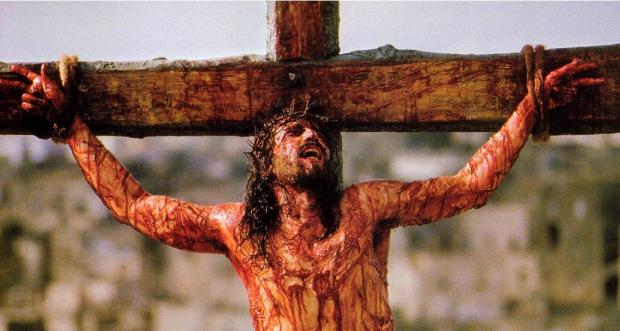The Prodigal Son Story Reminds Us That We Belong To God

Fr Dexter Brereton, CSSp
The parable of the Prodigal Son reminds us of the extreme nature of GOD’s love for us all, and that HE longs for us all to be Home and in right relations with HIM.
You belong to God with every fibre of your being. This is the spiritual backdrop against which we are to understand these three great parables of Christ searching for the lost sinner. Christ searches diligently for them because they belong to him. God loves all that God has made, even what seems worthless and tainted in the eyes of men. The Lord loves the sinner, because the sinner belongs to God.
The first parable is a little ridiculous. Jesus asks his listeners: “What man among you with a hundred sheep, losing one, would not leave the ninety-nine in the wilderness and go after the missing one till he found it?” At first, reading this, we may shake our heads and agree with the conclusion that all of us indeed would do so. Yet, after a moment’s pause, our business and common-sense kicks in. We ask ourselves “IS HE OUT OF HIS MIND? DO YOU KNOW HOW MUCH FOR ONE SHEEP????” The truthful answer is, then, “No one.” No one would risk the whole flock of ninety-nine VALUABLE SHEEP in the desert and search for one animal. Sheep are very expensive for such extravagance. Yet, it is precisely the extravagant love of the shepherd for this one sheep that is the point. God loves us, extravagantly, even recklessly. The shepherd, we are left to conclude, searches recklessly for the one sheep because it is HIS SHEEP.
The woman in the second of three parables of the lost sinner lights a lamp and sweeps the house till she found her coin. The word for coin in Greek is “drachma” which is the equivalent of one denarius, which at the time of Jesus represented a day’s wages. The search therefore, is certainly justified. If she were a Trini woman she would have prayed to St. Anthony before beginning her search. She finds the coin and says to her neighbours. “Rejoice with me…I have found the drachma that I lost.” Again, as in the case of the one lousy sheep, she searches diligently for the lost coin because the coin is HER PROPERTY. THE COIN BELONGS TO HER.
The third parable is one of Jesus’ most famous. The parable of the lost son. Or, as it has come down to us in the Christian tradition, the parable of the “prodigal” son. The word “prodigal” means wasteful, implying the wastefulness of the younger son’s life while he wasted his inheritance. What the story celebrates in fact, is the “prodigality” the “wastefulness” the “extravagance” of the father’s love for both his sons, his younger and his older sons.
To begin with, the younger son’s request of having the share of the estate that would come to him could only have been interpreted as an INSULT to the father. In the time of Jesus, the younger son, by custom, was normally bequeathed one-third of his father’s property. But this came to him only upon his father’s death. To request this property while his father was alive, was in a sense, to wish that his father was dead. ‘Tragically’ ‘without reason’ it seems, the father gives in and grants the boy his wish. He then moves away from his father’s influence, from his father’s household ‘and left for a distant country.’
As we say in Trinidad, ‘What sweet in goat mout’ sour in his bam bam’. He spends his money on a life of debauchery, but when he had spent it all, that country experienced a severe famine and he began to feel the pinch. A moment’s pleasure gave way to a lifetime of regret. I was reading recently some literature on addiction and it said interestingly that people give in to addictive behaviour, they act out, as a way of ‘medicating’ some negative feeling or stress they may be experiencing. Unfortunately, this relief is only temporary and they end up with a loss of self-esteem, with a sense of shame and loss. In a similar way, this process is symbolized in this story. The young man is forced to hire himself to one of the local inhabitants to work on his farm to feed the pigs. The pigs for Jews represented everything that was unclean. Thus, in this story, his work on the pig farm symbolized the fact that the younger son’s life had hit rock bottom. He was now at a very low point. Rather than feel sorry for himself or standing on false pride, the young man decides to go back to his father.
The story becomes very interesting at this point. St Luke writes “While he was still a long way off, his father saw him and was moved with pity. He ran to the boy, clasped him in his arms, and kissed him tenderly.” The father could only see the boy a ‘long way off’ because, touchingly, ever since his younger son left home, the old man sat outside his house, his eyes peeled on the horizon, awaiting his return. He was looking out for him, on the watch for him, keeping vigil for him. The father leaves his dignity behind, runs to him, and kisses him. The Father in heaven deals with the sinner in the same manner. God does not ‘stand on ceremony’ as we say. God comes to us, while we are ‘still a long way off’ in other words, God takes us into his embrace, even if we have not fully repented, or are not yet fully conscious of our sin. God will take us and forgive us in our incompleteness, even as we are still full of mixed motives, even when our hearts are not fully pure.
Earlier this week, the man dubbed ‘the Calypso king of the world’ the Mighty Sparrow was baptized in New York. The sometimes snarky or cynical responses to this event would have made note of the fact that after a celebrated life that was totally unspiritual, Sparrow might have been a bit hypocritical getting baptized so close to the end. Yet, this is precisely the God we worship. God will accept our repentance, no matter how late, no matter how incomplete, because, like the shepherd, like the woman with the lost coin, like this doting father who spoils his sons, WE BELONG TO GOD.
Dear Lord, thank you for showing us in your word that we belong to you. You love us to the point of risking your 99 sheep to go in search of one. You love us to the point of lighting a lamp and turning the house upside down till you found us, like a lost coin. You run to us, clasp us in your arms and kiss us tenderly’ as we return from the land of sin, because we belong to you, body and soul.






